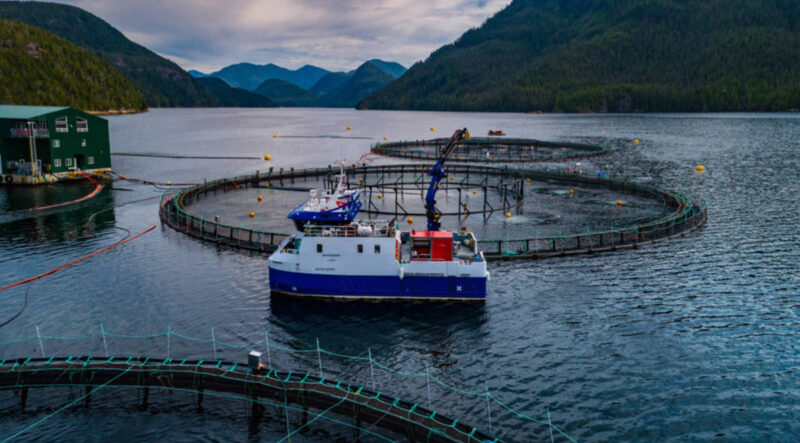Salmon farmers want more time to develop transition plan
Future of aquaculture in the Discovery Islands should be part of Transition Plan for all of BC, say salmon farmers and First Nations
By Fabian Dawson
SeaWestNews.
BC’s salmon farmers are calling on the government to allow for more time to develop a Transition Plan for the aquaculture industry to successfully drive further innovation and technology adoption.
They are also asking Federal Fisheries Minister Joyce Murray to include her pending decision on the continued operations of salmon farms in the Discovery Island, to be part of the entire Transition Plan.
“While the salmon farming sector is fully committed to working with the Minister to develop this Transition Plan, it does have concerns about the rushed timeline that Minister Murray has set for this process,” said Ruth Salmon, Interim Executive Director for the BC Salmon Farmers Association (BCSFA).
“The short time frame set for consultations on the farmed salmon production areas in the territories of the Laich-kwil-tach, which has been referred to in the past as the Discovery Islands region, are of particular concern,” she said.
“The farms in these areas, are critical to the future of the sector, as well as to those First Nations who view salmon farming as a means to socio-economic stability for their communities.
“Given the importance of the production areas within the Laich-kwil-tach territories, our sector stresses the importance of those First Nations to be integrated into the larger discussion of the Transition Plan, instead of being addressed as a separate region,” added Salmon.
The Coalition of First Nations for Finfish Stewardship (FNFFS) also raised similar issues during meetings with the minister on Vancouver Island last week.
Former federal Fisheries Minister Bernadette Jordan decided in Dec. 2020 to phase out 19 salmon farms in BC’s Discovery Islands, despite nine-peer reviewed scientific studies that showed the marine operations had virtually no impact on wild stocks migrating through the area.
The Federal Court last April ordered the government to set aside its decision to phase out the Discovery Islands farms after reaffirming an earlier ruling that “salmon aquaculture in B.C. poses no more than a minimal risk to wild salmon.”
Subsequently, Murray announced two-year licences for 79 other salmon farms in BC as part of a Transition Plan for the industry. This Transition Plan, which involves ongoing consultations, is expected to be finalized in the Spring of 2023.
It does not involve the future of salmon farms in the Discovery Islands as there are separate consultations on this issue. A decision on the Discovery Islands is expected in January 2023.
Throughout last week, Minister Murray met with various salmon farming companies and other members of the BCSFA and toured several salmon farming facilities across Vancouver Island.
“Salmon farming is continuously evolving, improving, and innovating, which can come as a surprise to those outside of the farming community,” said Salmon.
“It was a pleasure to meet with the Minister and her team to not only discuss these improvements but showcase them, as she visited several farm sites and a hatchery,” she said.
The permanent closure of salmon farms in the Discovery Islands of BC will result in 1,498 people losing their jobs, mostly in the coastal communities of North Vancouver Island, an initial estimate by the industry shows.
The closures will also result in the loss of $379.7 million in economic output for the region, a labour income loss of $84.6 million and a tax hit for the region amounting to $21 million.
The Gross Domestic Product (GDP) of BC will ultimately shrink by $135.6 million as a result of the decision, that will devastate the economies of Campbell River, Gold River, Port McNeill, and Port Hardy.
According to the Canadian Aquaculture Industry Alliance (CAIA) farm-raised salmon is the most popular seafood choice of Canadians.
About 97 per cent of salmon produced in Canada is farm-raised, which is key to sustainably meeting the growing demand for Canadian salmon, while at the same time reducing pressure on limited wild stocks, states CAIA.
“Salmon farming in Canada is highly regulated, achieves third-party environmental certification standards, creates long-term economic growth for rural, coastal, Indigenous and non-Indigenous communities, employs 14,500 Canadians, and generates over $4 billion in economic activity annually,” the organisation said.
(Image shows a salmon farm in the Discovery Islands)

